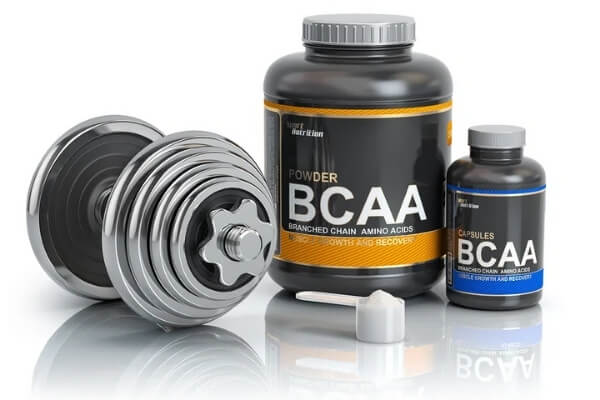AMINO ACIDS
Amino acids are organic compounds. They’re made up of nitrogen, carbon, hydrogen and oxygen.
Although there are nine essential amino acids, your body needs 20 different amino acids to grow and function properly.
The nine essential amino acids are histidine, isoleucine, leucine, lysine, methionine, phenylalanine, threonine, tryptophan and valine.
The nonessential amino acids can, fortunately, be made up by your body. However, the nine essential ones cannot. These will need to be obtained through your diet, or supplements.
When you eat protein, it’s broken down into amino acids. These amino acids are then used to help your body with various processes, such as building muscle and regulating immune function.
The nine essential amino acids perform a number of important and varied jobs in your body:
- Phenylalanine: Phenylalanine exists in two forms or arrangements: L-phenylalanine and D-phenylalanine. Your body is unable to produce enough L-phenylalanine on its own. This is why it’s considered an essential amino acid. Phenylalanine has been studied as a treatment for several medical conditions including skin disorders, depression and pain.
- Valine (BCAA): Valine is found in many proteins. It’s mostly found in the interior of globular proteins. This helps to determine the three-dimensional structure. Valine also helps stimulate muscle growth and regeneration and is involved in energy production.
- Threonine: Threonine is a principal part of structural proteins, such as collagen and elastin. These are important components of the skin and connective tissues. Threonine is changed in the body to a chemical called glycine. Glycine works in the brain to reduce constant and unwanted muscle contractions.
- Tryptophan: Tryptophan is needed for nitrogen balance. Although it does have other benefits. It is a precursor to serotonin, which is a hormone that transmits signals between nerve signals. L-tryptophan is naturally found in animal and plant proteins.
- Methionine: Methionine plays an important role in metabolism and detoxification. Methionine also plays an important role in producing new proteins in your muscles. Especially after a heavy exercise session which caused damage to them.
- Leucine (BCAA): Leucine is critical for protein synthesis and muscle repair. It can also prevent the breakdown of muscle proteins after trauma or serious stress.
- Isoleucine (BCAA): Isoleucine is involved in muscle metabolism and is heavily concentrated in muscle tissue. Isoleucine has various physiological benefits. These include assisting in wound healing, detoxification of nitrogenous waste, stimulating immune function and promoting the secretion of several hormones.
- Lysine: Lysine is very important in protein synthesis, hormone and enzyme production. It helps the body to absorb calcium, iron and zinc. It’s also important for energy production, immune function and the production of collagen and elastin.
- Histidine: Histidine is used to produce histamine. Histamine is a neurotransmitter which is essential to immune response, digestion, sexual function and sleep-wake cycles.
BCAAS
Of these nine, three are referred to as Branched Chain Amino Acids (BCAAs) because of their chemical structure. The three BCAAs are valine, leucine and isoleucine.
Athletes consume these BCAAs to rapidly increase amino acid levels in the bloodstream, promote protein synthesis, and prevent muscle protein breakdown.
One of the main effects of BCAAs is that it can increase muscle growth.
The BCAA, leucine, activates a certain pathway in the body that stimulates muscle protein synthesis. Protein synthesis is the process of making muscle.
In one study, people who consumed a drink with 5.6 grams of BCAAs after their workout, had a 22% increase in muscle protein synthesis, compared to those who consumed a placebo drink.
While BCAA supplements can increase muscle protein synthesis, they can’t do this to the best of their ability without using other essential amino acids. It is a good idea to get the rest of your amino acid intake from whey protein, or other complete protein sources.
Instead of only concentrating on BCAA supplements, you should ensure you are consuming all of the essential amino acids, for the best results.
Try our Optimum Nutrition Gold Standard range to get all of your Amino Acid intakes in one place!
